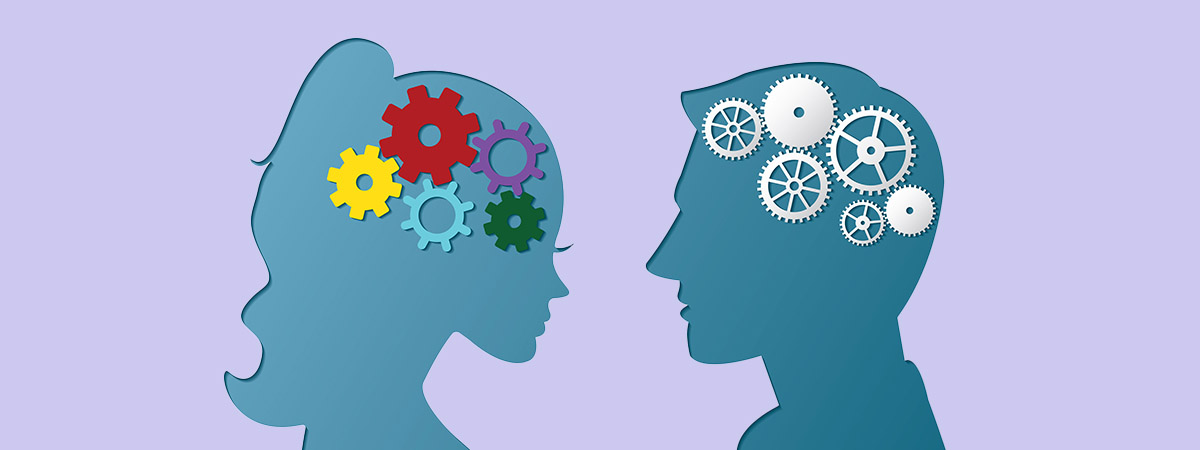
Explore The Gender Differences In Substance Use Disorders Near Boston
All people with substance use disorders (SUDs) have urges to consume addictive substances like alcohol or drugs. These mental disorders are found in both men and women, but will the two genders experience SUDs in a different manner? The most recent studies say “Yes.”
Being aware of the gender differences in substance use disorders near Boston can help you determine when someone you care about -- woman or man -- needs addiction treatment. It also helps addiction treatment providers, like AffinityOne Millbury, know how to care for patients. If you haven’t pondered how substance use disorders influence women and men before, examine the following information.
Do Both Genders Have The Same SUD Symptoms?
Both genders generally show the same substance use disorder symptoms. These include:
- Feeling compelled to use a habit-forming substance daily or multiple times a day
- Getting acute compulsions to use that become more important than other pastimes or obligations
- Needing bigger quantities of a substance to experience the desired effect
- Losing control over how often or how much you use
- Spending in excess of what you can afford on substances
- Putting an emphasis on acquiring substances over other life priorities
- Not fulfilling commitments because of substance use
- Withdrawing from people close to you and social activities so you may use
- Continuing to take the substance even if you know it is creating problems
- Partaking in risky or illegal activities to obtain or take the substance
- Going into withdrawal if you make an effort to halt use
- You are unsuccessful in any bid to cease using
Although, dependency-causing substances affect female bodies more speedily, so a substance use disorder advances faster in women. Women, therefore, are more likely to experience serious symptoms before getting treatment.
What Are A Few Noteworthy Differences In Substance Use Disorders Between Men And Women?
According to new research about substance use, men will experience drug or alcohol use disorders differently than women. In general:
- Men are more likely to use illicit drugs or misuse prescriptions.
- Women are more likely to misuse prescription opioid pain relievers, anti-anxiety meds, and sleep aids.
- Men have higher rates of dependence for drugs and alcohol.
- Mortality rates among women with alcohol disorders are 50 to 100 percent higher than in men.
- Men and women are equally likely to have a substance use disorder.
So, while men are more likely to use illegal substances, women are more apt to misuse prescriptions. This could be attributed to the fact that women are more inclined to get treatment for pain, sleep disorders, and anxiety. And although more men use addictive alcohol and drugs generally speaking, female anatomy puts women at an elevated risk for fatal diseases caused by substance use. But it’s crucial to remember that everyone who uses addictive alcohol or drugs has a similar chance of developing a substance use disorder, and any SUD might be life-altering or even deadly.
Do Men And Women Search For Addiction Treatment At Similar Rates?
One significant gender difference in substance use disorders near Boston deals with treatment. More men seek addiction support than women. Women are often the chief caregivers and may not have someone to look after their loved ones if they start treatment. They may be afraid of losing their children if they disclose their addiction. Men are not as likely to have caregiving obligations that prevent them from seeking residential care services.
Once they begin treatment, enduring recovery is difficult for all people. But, men have a better probability of attaining it as they are less likely to relapse. Women relapse at higher rates since they are more likely to suffer from a debilitating substance use disorder or co-occurring disorders that inhibit recovery. They could also have trouble addiction centers that tailor treatment to their exact needs.
None of this information should discourage any individual from finding treatment. Understanding these facts helps addiction recovery centers, loved ones, and society in general gain a better understanding how to help those experiencing SUDs. If you need assistance recovering from alcohol or drug addiction, contact a local, respected treatment facility today.
Get Treatment That Knows About Gender And Addiction Near Boston
Men and women have varying needs for SUD treatment. AffinityOne Millbury always customizes our support to your exact requirements. If you are searching for a safe spot to stay and work toward addiction recovery, call us at (508) 859-7782 or complete the following contact form. We reply immediately, at all hours. Place the call now; we’re here to help.
